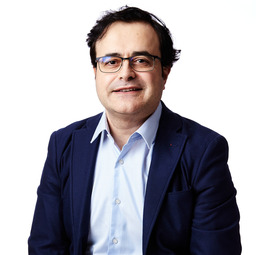A CFO’s Perspective: Managing Through Times of Uncertainty


It’s been a long time since the global economy has faced so many challenges at once.
The economic prosperity of 2019 seems like an aberration today, entirely overshadowed by the global pandemic, social unrest, war, and the environmental chaos that followed. All of this and more contributed to global supply chain constraints, soaring inflation, labor shortages and a growing skills gap, to name just a few.
But as the new year unfolds, I’m becoming cautiously optimistic. And if last month’s WSJ CFO Network Summit in New York was any indication, there may be light at the end of the economic tunnel.
John Williams, for example, the president and CEO of the Federal Reserve Bank of New York, said that while there still may be a broad spectrum of views around recession, the general sentiment is that the economy is showing more resiliency than initially expected. Things like a healthy U.S. jobs market and slowing inflation, are helping. Globally, indicators suggest the European and China economies may fare better than expected, for very different reasons.
Meanwhile, Mary Ann Deignan, Head of Capital Markets at Lazard Freres & Co., expects both IPO and Private Equity funding to recover somewhat in 2023. But to do it, she suggested a “back to basics” mentality to strengthen balance sheets, divest of non-core businesses, manage costs, and focus on profitability.
Luckily for our company, we’ve always turned to these kinds of approaches when facing economic headwinds. As CFO, I look to enable growth and transformation through a comprehensive understanding of the business. While this is more challenging in times such as these, I believe we'll succeed by taking a stakeholder versus shareholder approach. For us, our key stakeholders are our employees, customers, and partners, and we’re striving to learn and engage with each like never before.
One of the many things we all learned from the pandemic was how resilient and flexible we can become when facing formidable odds. Consider the work-from-home (WFH) movement, which evolved from a business-saving necessity into a productivity model. To get there required a tremendous amount of trust from all parties. To achieve that required transparency across teams and along every rung of the corporate ladder. Done thoughtfully, however, and the results were clear: tighter collaboration and more effective and efficient execution by all team members. And let’s face it, employees have always expected transparency and work flexibility. The difference today is that the C-suite is expected to deliver it.
Bolstering relationships with customers and partners is equally critical to growing the bottom line in times of uncertainty. As my colleague Kimberly King recently shared, looking for new ways and opportunities to engage is key. One area in particular that’s important to her how our partner relationships are expanding into the world of co-creation. Through co-creation, we’re joining forces with partners to help them better align go-to-market strategies and get custom solutions into the hands of clients sooner. It’s difficult to compete with an approach like this because everybody wins.
Make no mistake, the road ahead will continue to be riddled with challenges. But to have a transformative impact, modern finance professionals must maintain and apply an intellectual curiosity and take active roles in understanding the business, its needs, and direction. By doing so, we manifest the reliable partner, add value to the relationships and provide a foundation of trust to fuel the business further. Prioritizing these areas can help ensure we reach the light at the tunnel’s end.

As CFO, Inigo is responsible for overseeing all financial operations for Hitachi Vantara. He joined the company in 2020 and has +20 years of experience leading financial management teams at global companies including Mercedes-Benz, Dow Jones and Cognizant.